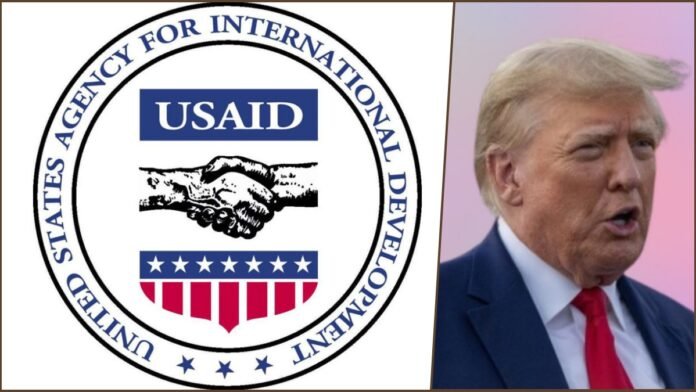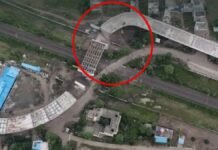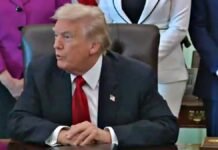
Key Points:
- The Trump administration has fired 2,000 USAID staffers and placed over 4,200 others on administrative leave globally, marking a significant downsizing of the agency.
- USAID, the U.S.’s primary international aid organization, has been a cornerstone of global humanitarian efforts since 1961.
- Critics warn the move will disrupt vital programs in over 130 countries, leaving millions without access to food security, healthcare, and disaster relief.
- President Trump and Elon Musk have called USAID a “wasteful” agency, aligning the cuts with their agenda to reduce federal government size.
- The decision has sparked outrage among international leaders, aid advocates, and unions, who warn of dire humanitarian and geopolitical consequences.
Washington D.C: In a sweeping move that has sent shockwaves through the global aid community, the Trump administration announced on Sunday that it would fire 2,000 U.S.-based employees of the United States Agency for International Development (USAID) and place over 4,200 others on administrative leave. The decision is part of President Donald Trump’s broader agenda to downsize federal agencies and reduce foreign aid spending.
The announcement came after a federal judge allowed the administration to proceed with its plan to drastically cut USAID’s workforce. Effective as of February 23, 2025, only personnel responsible for mission-critical functions will remain active. Critics argue that this move threatens to dismantle one of the world’s largest humanitarian organizations.
The Cuts: What’s Happening at USAID?
USAID staffers received notices late Sunday night stating that most employees would be placed on leave indefinitely. The agency also confirmed plans for a Reduction-in-Force (RIF) that will eliminate 2,000 positions in the U.S., primarily affecting Washington-based staff.
Key details include:
- Administrative Leave: Over 4,200 employees globally will be placed on paid leave but barred from conducting official business or accessing agency systems.
- Mission-Critical Staff: Only about 600 personnel will remain active to manage essential functions such as overseas travel arrangements for staff and families.
- Global Impact: Programs in more than 130 countries are expected to face disruptions or complete shutdowns.
The decision follows Trump’s executive order earlier this year freezing most foreign aid for 90 days pending review.
Why Is Trump Targeting USAID?
President Trump and his ally Elon Musk have been vocal about their criticism of USAID. During his speech at the Conservative Political Action Conference (CPAC), Trump called the agency a “left-wing scam” and claimed its programs were wasteful and misaligned with U.S. interests. Musk, who has been leading cost-cutting efforts through the Department of Government Efficiency (DOGE), described USAID as a “criminal organization” needing to be dismantled.
The administration has also canceled millions of dollars in foreign aid projects, including $21 million allocated to India for voter turnout initiatives. Critics argue that these cuts are politically motivated and undermine decades of U.S. soft power diplomacy.
The Humanitarian Fallout
USAID has been instrumental in providing humanitarian assistance across the globe since its inception in 1961. Its programs span disaster relief, global health initiatives, education, and poverty alleviation. Experts warn that dismantling or freezing its operations could have catastrophic consequences:
- Food Security:
- Countries like Yemen, South Sudan, and Syria rely heavily on USAID-funded food programs. Reduced funding could exacerbate hunger crises in these regions.
- Healthcare:
- Vital health programs such as HIV/AIDS treatment under PEPFAR (President’s Emergency Plan for AIDS Relief) are at risk. Over 21 million people could lose access to life-saving medication.
- Disaster Relief:
- USAID’s Bureau for Humanitarian Assistance coordinates disaster response globally. Cutting these resources could delay aid during emergencies like earthquakes or pandemics.
- Education and Gender Equality:
- Programs aimed at improving access to education for girls and marginalized communities face suspension.
- Economic Development:
- Microcredit and financing initiatives supporting small businesses in low-income countries will be halted, slowing economic growth.
Global Reactions: Outrage and Warnings
The decision has drawn widespread criticism from international leaders, advocacy groups, and unions:
- Oxfam America President Abby Maxman called the move “callous” and warned it would have “deadly consequences for millions.”
- Former senior USAID officials described the cuts as “shortsighted” and damaging to U.S. credibility abroad.
- European leaders expressed concern about a potential vacuum in global aid leadership that could allow adversaries like China or Russia to expand their influence.
Even within Congress, Democrats have questioned the legality of dismantling an independent agency without legislative approval. Legal experts argue that congressional authorization is required for such actions under the Foreign Affairs Reform and Restructuring Act of 1998.
Geopolitical Implications
The downsizing of USAID raises concerns about America’s diminishing role in global leadership:
- Loss of Soft Power: USAID has been a critical tool for advancing U.S. foreign policy through humanitarian assistance.
- China’s Expanding Influence: Analysts warn that China could fill the void left by U.S. aid cuts by increasing its investments in developing regions.
- Destabilization Risks: Reduced funding could destabilize fragile regions where U.S.-funded programs have maintained stability.
New Jersey Senator Andy Kim criticized the administration’s actions as undermining national security interests by weakening partnerships abroad.
Impact on Workers
The blanket nature of dismissal notices has left thousands of workers uncertain about their future:
- Many dismissed employees may struggle to claim unemployment benefits due to vague termination letters.
- Overseas staff in conflict zones face heightened risks without access to government communication or medical resources.
- Unions representing federal workers have vowed to challenge the decision in court.
What’s Next?
While Trump’s administration moves forward with dismantling USAID, legal challenges are expected to intensify. Advocacy groups are urging Congress to intervene and protect critical aid programs from permanent disruption.
Experts warn that if these cuts continue unchecked, they could reverse decades of progress in global health, poverty alleviation, and disaster response leaving millions vulnerable worldwide.
As one former official put it: “This isn’t just about cutting costs; it’s about cutting lives.”

















































